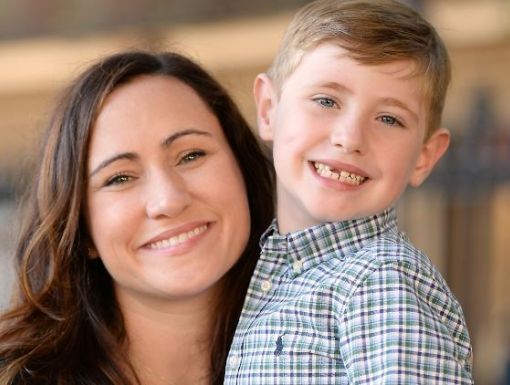
Social Distancing with Congenital Heart Disease
For some, staying at home with your kids 24/7 can make it feel like we’ve been quarantining for a lifetime. But it’s important to understand that we are still very early in the COVID-19 experience when it comes to how much we know about the virus and the illnesses it causes. While many are ready to get back in a normal routine and send their children to summer camp, you might be wondering if being in a social environment is too risky for those with congenital heart disease.
New data is becoming available daily, so it is impossible to be definitive about risk. Here is what we know now about how the novel coronavirus can impact adults and children with congenital heart disease.
How does coronavirus affect children with congenital heart disease (CHD)?
In general, children seem to tolerate COVID-19 infection well; however, there are rare cases of previously healthy children responding poorly to the disease. Anecdotal reports out of Italy and New York City suggest that most children with heart disease tolerate coronavirus infection surprisingly well, but we would still consider some to be at a significantly higher risk for more severe disease. Cyanotic patients (patients with low oxygen levels), single ventricle patients (including patients who have had a surgery called the Fontan procedure), patients with decreased heart function (including cardiomyopathy patients), patients with excessive blood flow to the lungs due to shunting within the heart, and patients with pulmonary hypertension (abnormally high pressure in the lungs) would all seem to be at increased risk related to coronavirus infection.
We would also be concerned about patients with potential immune deficiencies due to syndromes such as Down syndrome, DiGeorge syndrome and asplenia (absence of normal spleen function). Heart transplant patients who are on medications to decrease their immune response would be considered high-risk. Some of the medications that have been used to treat COVID-19 could potentially increase the risk of abnormal heart rhythms in patients with Long QT syndrome (a heart rhythm condition that can cause fast, chaotic heartbeats) or other rare heart rhythm problems. Children with other chronic illnesses such as kidney disease or lung disease may also be at higher risk.
How does coronavirus affect adults with congenital heart disease?
Adults with congenital heart disease are an extremely diverse population. Some patients have very well repaired defects with minimal impact on heart function, and we don’t expect a significantly increased risk in these patients. Many patients, however, have significant residual heart disease that could increase risk. The same risk factors noted above would apply. As adults with congenital heart disease get older, we also see more of the factors associated with higher risk in the adult population, including hypertension, diabetesand obesity.
It seems that COVID-19 is impacting a lot of patients with cardiac disease. Would you all put congenital heart patients in this segment of the population?
As mentioned earlier, some adults with congenital heart disease have very well repaired defects with excellent underlying function of their heart muscle and valves. Those patients likely aren’t at a significantly increased risk compared to the general population. However, other patients have significant residual issues that likely increase risk. It is best to discuss your case with your congenital heart disease doctor, as each patient is different.
Should people with congenital heart disease be more cautious with social distancing?
We all should be very cautious during these times. It is important that everyone follow recommendations regarding social distancing, frequent hand washingand wearing masks. High-risk congenital heart disease patients should be even more cautious. Staying at home as much as possible and limiting interactions with individuals outside of the home are both very important.
Can my child with congenital heart disease go to camp or school while coronavirus is still active?
Socialization is very important for congenital heart disease patients, and summer camps and school experiences are great. However, we must be careful making blanket recommendations for such a varied population. If you live in an area that is still seeing a lot of cases, it is very unlikely that we would recommend summer camps or school (other than online) for any high-risk congenital heart disease patients. But if your disease is well-managed and risk is low in your area, it might be a good time to let your children get back to socializing – with the proper safety measures, of course.
Again, it is very important to check with your doctor about risk as each patient is different. If you have questions about yourself or a family member, make an appointment with one of our adult or pediatric cardiologists right away.
Learn more about the Congenital Heart Center at Ochsner.


